A harrowing new film from Alex Garland’s production banner, Warfare drops viewers into a real-time combat mission in Iraq. Set in 2006, it follows a team of Navy SEALs on a surveillance mission gone awry. Co-written and co-directed by Garland and Ray Mendoza—whose own platoon was ambushed during the real-life event—the film is both brutal and deeply personal, capturing not only the chaos of combat but also the unbreakable bond between soldiers.
The idea for the film took root when Mendoza, while working on Garland’s Civil War, shared his story. Garland agreed it was a film worth making. Together, they shaped the retelling grounded in memory—one that’s less about plot twists and more about emotional truths.
The Watercooler sat down with Ray Mendoza and cast members D’Pharaoh Woon-A-Tai, Will Poulter, Kit Connor, and Michael Gandolfini to talk about filming under fire, the emotional toll of telling a real story, and what helps them unwind after inhabiting such a heavy world.
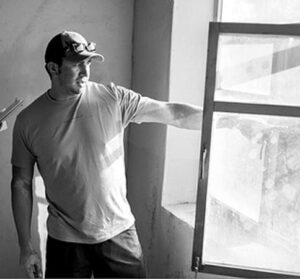
Felipe Patterson: Ray, you co-directed and co-wrote Warfare based on your own experiences as a Navy SEAL, and it’s a film that does not shy away from the psychological horrors of war. What was more challenging—retelling the story through the script, or witnessing it come to life on set?
Ray Mendoza: I’d say being on set was definitely more challenging. Writing it was tough too—there’s so much subtext and context you can’t even fit on the page. It would’ve been 300 pages long if we’d included everything. But on set, I had to mentally track all of that. Every single arc. Every emotional beat. A lot of these characters are based on my friends, and I needed to make sure they were represented accurately—this was their memory too.
So that became my biggest stressor. The actors had the weight of portraying someone truthfully, but ultimately, it was on me to guide that. Balancing all of that on set—that was the hardest part.
Felipe Patterson: D’Pharaoh, you play Ray in the film. What was it like being directed by the person you were portraying?
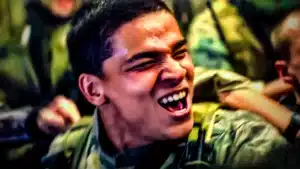
D’Pharaoh Woon-A-Tai: It was a lot of pressure—but also a privilege. I was lucky to have Ray there every single day. He was also our bootcamp trainer for three and a half weeks, which really helped build trust. But yeah, there was definitely pressure to do it right, knowing what Ray and his team went through. After every take, I’d turn to him and ask, “Was that it? Do I need to change anything?” I wanted to make sure he was happy with how it was coming across.
Felipe Patterson: As someone who used to work in an ER, I found the explosion injuries incredibly realistic. Some soldiers don’t even remember those moments—despite being conscious. What was the hardest part of bringing that realism to life?
Ray Mendoza: Honestly, it was the resets. Once the blood is established, it’s easier—but getting there is tough. You have to clean up every drop, reset the prosthetics, and sometimes they’d rip or get damaged. The prosthetics were based on real photos—like Elliot’s legs. Our effects team reverse-engineered what those injuries would have looked like. So yeah, accuracy was key, but it was time-consuming.
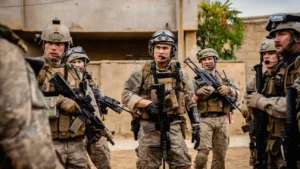
D’Pharaoh Woon-A-Tai: Yeah, especially in the dissociative scenes with Rick. Ray had a hard time explaining that to me—because how do you describe a moment you weren’t mentally present for? But honestly, the set design, the blood, the explosions—our crew nailed it. It was immersive. We lived together during training, so we’d built these bonds. That made the emotions easier to tap into. A lot of it was just natural reaction.
Felipe Patterson: Given the heavy subject matter, what helped you unwind during filming? Any palate cleansers you’d recommend?
Ray Mendoza: I was so exhausted, I had no problem falling asleep. But really, for me, it’s about my friends. My community. We’d sit down, have a beer, talk about what we just did. Levity is important. I use humor to counterbalance the weight of it all. That’s something I picked up in therapy—just talk it out, then show up again the next day.
D’Pharaoh Woon-A-Tai: It took a toll, for sure. You’re screaming for days, crying, looking wrecked—it wears on you. But we supported each other. Whether it was smiling after a take or decompressing back at the hotel, we made space for each other. One night we watched Hook—hadn’t seen it since I was a kid. But it was exactly what we needed. Light, nostalgic, comforting.
Felipe Patterson: Ray, the film includes a powerful depiction of Elliot Miller, your fellow officer who was gravely injured. What was his reaction after seeing the film?
Ray Mendoza: I think he was relieved. He doesn’t have a visual memory of that day, but he knows what happened. He’s got two sons now, a wife, a family. And they’ve had questions—lots of questions. This gave him a way to share his story. He communicates through an iPad, and now he has this visual record to pass on. For someone who can’t speak about it, this film is a gift.
Felipe Patterson: What was the hardest part about preparing for and shooting the film? And what advice from Ray helped shape your performance?
D’Pharaoh Woon-A-Tai: We didn’t watch a bunch of war movies going in. They didn’t want us walking in with expectations or mimicry. We watched documentaries—Navy SEALS-BUDS (Class of 234) stuff like that. But most of the real prep came from the bootcamp. That was everything.
Even actors whose characters arrive halfway through the film trained with us from day one. We shared radios, trained as a unit, lived together. That kind of immersion built the chemistry you see on screen. When those characters showed up in the story, it felt real—like, “Thank God you’re here.”
Felipe Patterson: What do you hope people remember most about the film?
Ray Mendoza: The experience. We go to movies to feel something—to laugh, cry, reflect. This film is one of many thousands of stories like it. It’s not a Hollywood plot, it’s a memory. And we left space for viewers to bring their own emotions and interpretations. Just approach it with an open mind. This happened.
D’Pharaoh Woon-A-Tai: Yeah. And I’d add—just how young these soldiers were. That’s not shown enough in other films. These guys were so young, and that makes what happened even more heartbreaking.
Michael Gandolfini, Kit Connor and Will Poulter
Felipe Patterson: Michael, what sets this war film apart from others for you?
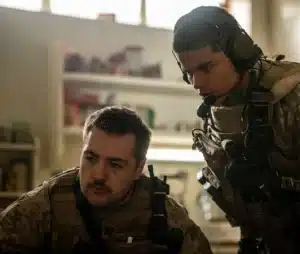
Michael Gandolfini: It’s a complete recreation. The screenplay was built from the collective memory of the men who lived it. Nothing’s embellished. Nothing’s dramatized for effect. This came from Ray wanting to show his best friend what really happened. So you get the smells, the sounds, the fear, all of it. To me, that makes it the most honest war film I’ve seen.
Felipe Patterson: Kit, what do you hope audiences take away from your character?
Kit Connor: This isn’t a typical narrative with defined character arcs. But we did sprinkle in personality traits early on—especially in the scenes before the grenade. For my character, what defines him is his age. He’s the newcomer, the most green. That affects how he sees everything, and how he reacts to it all.
Felipe Patterson: Will, there’s a scene where an explosion sends everything into chaos, and we see the officers begin to unravel. What do you think is going through their minds in that moment?
Will Poulter in ‘Warfare.’ A24
Will Poulter: I play the officer in charge of OP One, so there’s a natural leadership weight there. And without giving away too much—what the film shows, in broad terms, is that war overwhelms everyone. Everyone suffers loss, everyone breaks down. No one is spared from the trauma. In that moment, you’re watching men try to stay functional while their entire reality collapses.
Felipe Patterson: Given the emotional weight of the film, what’s a good movie you’d recommend as a palate cleanser or antidote after watching Warfare?
Felipe Patterson: After Warfare. ‘Cause yeah, it’s an emotionally heavy film. I went home and watched Family Guy.
Michael Gandolfini: Death of a Unicorn.
Kit Connor: Yeah, Death of a Unicorn!
(Will, sitting between the two, gives them both a slight hug with each arm.)
Felipe Patterson: Hey Michael, I’m surprised you didn’t mention Daredevil. Your character made me so upset.
Michael Gandolfini: (Laughs) That’s a good one to stream too.
The Takeaway: Unflinching, emotional, and unforgettable, don’t miss Warfare when it hits theaters including IMAX this Friday, April 11th.


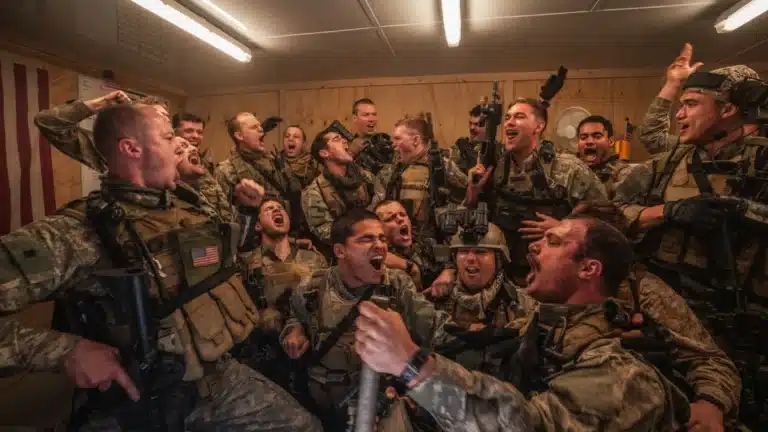
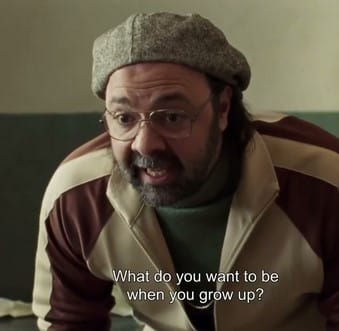
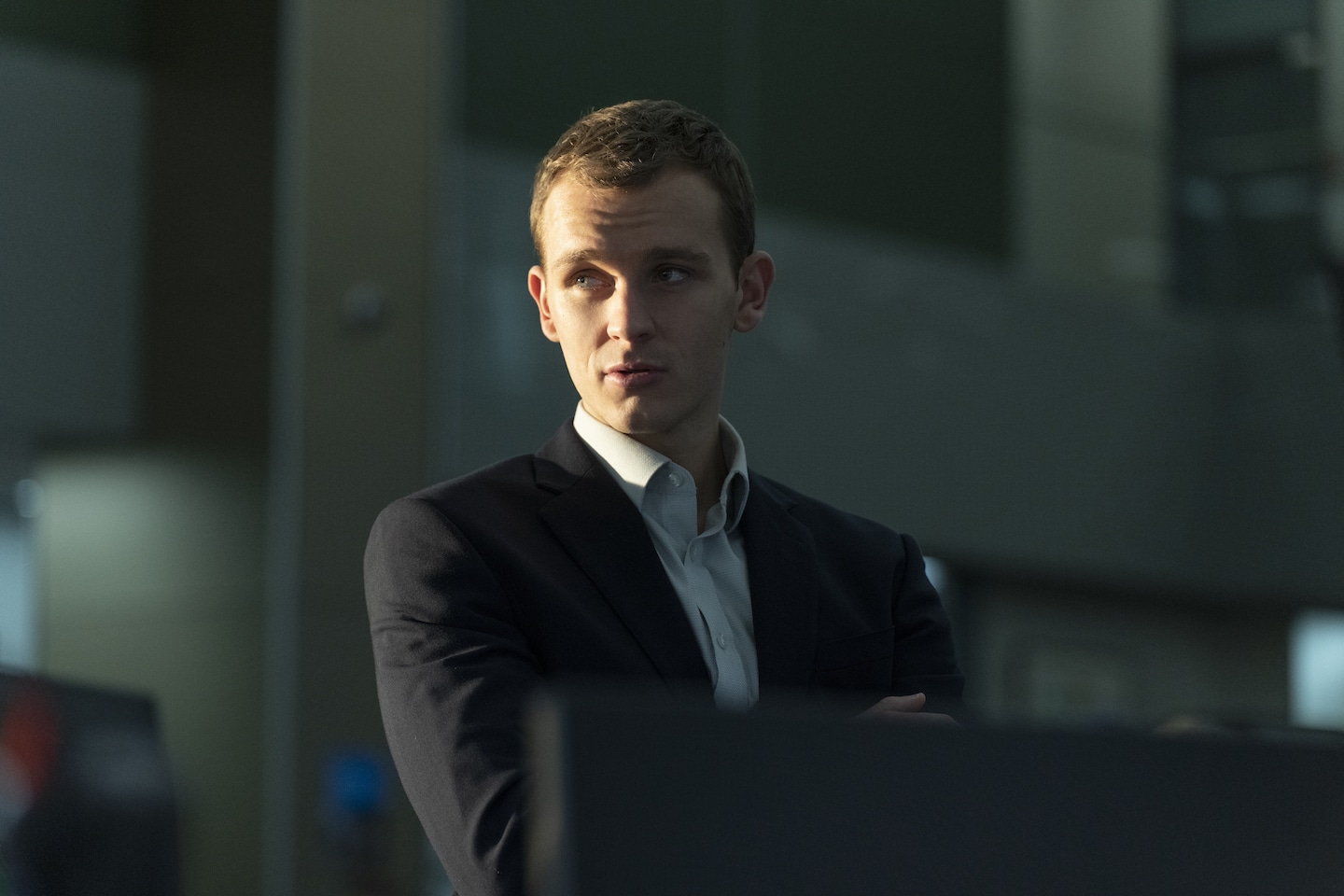
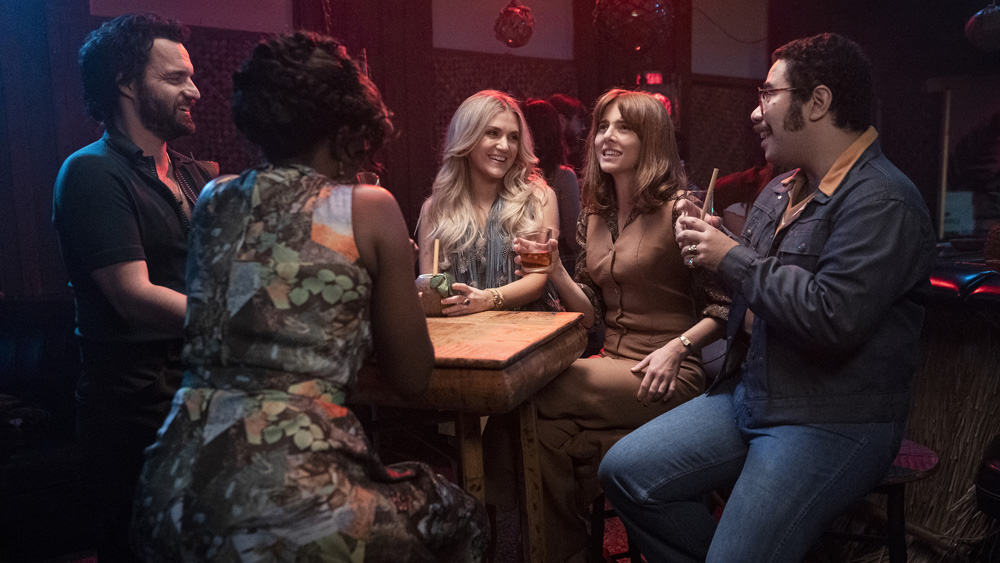
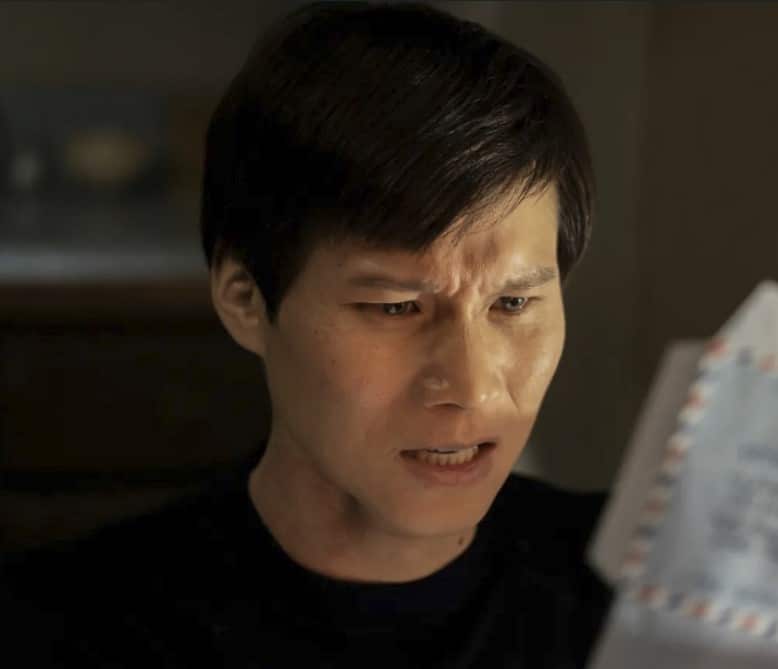


Start a watercooler conversation: